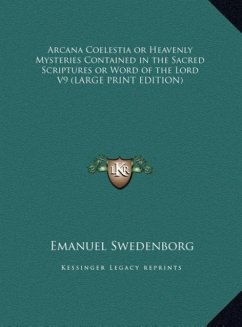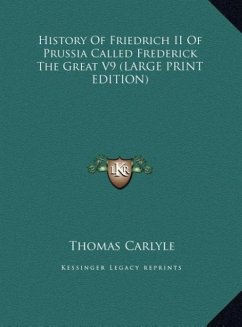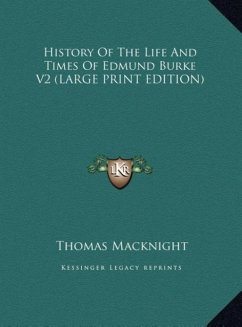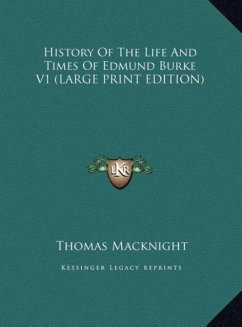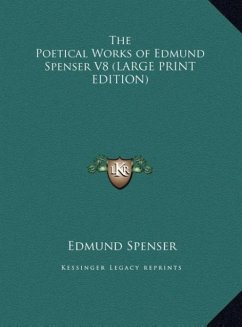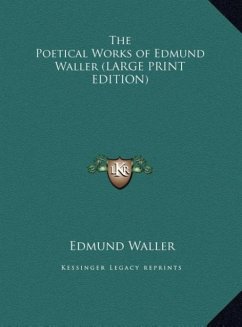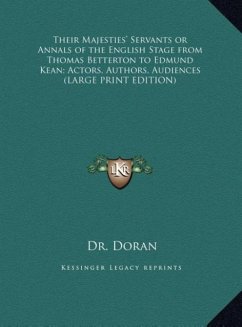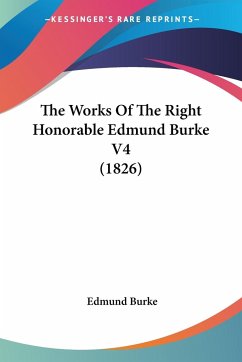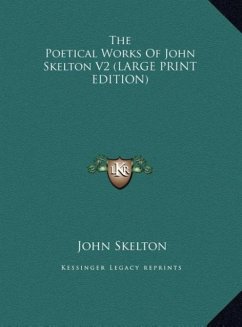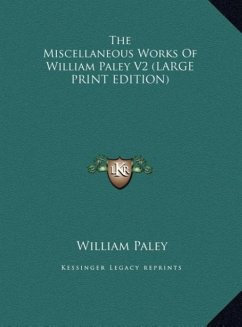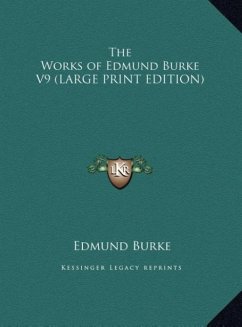
The Works of Edmund Burke V9 (LARGE PRINT EDITION)
Versandkostenfrei!
Versandfertig in 1-2 Wochen
61,99 €
inkl. MwSt.

PAYBACK Punkte
31 °P sammeln!
(LARGE PRINT EDITION) 1839. In Nine Volumes. The works of Edmund Burke, British statesman, parliamentary orator, and political thinker prominent in public life from 1765 to about 1795 and important in the history of political theory. He championed conservatism in opposition to Jacobinism in Reflections on the Revolution in France Contents: An account of the European Settlements in America; and The Epistolary Correspondence of the Right Hon. Edmund Burke and Dr. French Laurence. See other titles by this author available from Kessinger Publishing.



